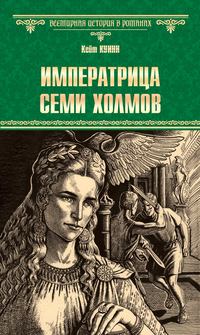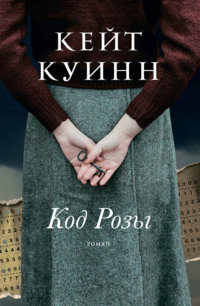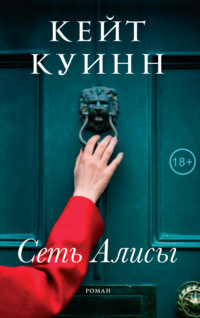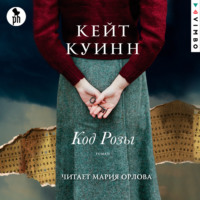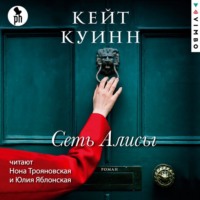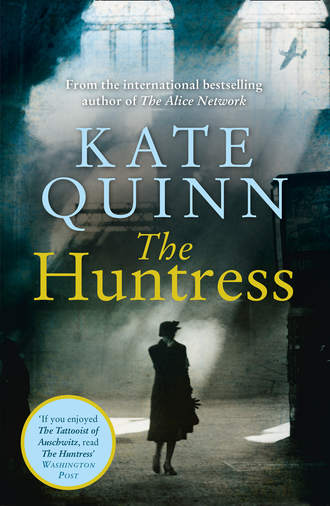
Полная версия
The Huntress
Ian shrugged. “Their eyes are a little more open now.”
They were walking back to the hotel where they’d taken rooms for the night. Ian would have headed for Salzburg at once, but Tony wanted to question Frau Liebl in the morning. Ian thought Adolf Eichmann’s deserted wife would be far warier than a couple of former maidservants about talking to strange men, but Tony was right; they couldn’t leave it unexplored. “I’ll buy supper,” he said, since Tony still looked disapproving.
“No, I’ve got to take Helga Ziegler out tonight, show her a good time. And she’s in a sulk thanks to you, so it’s going to take all my very considerable charm.”
“Why take her out?”
“Spend weeks buttering up a girl only to drop her as soon as you have the information you need, and girls tend to feel used.”
“That’s because she was used, Tony. She was also paid.”
“Still, no one likes to be fobbed off the minute they’re not useful. And she’s not a bad sort. Her sister isn’t either.” Pause. “They aren’t wrong, you know. Things were complicated during the war. Survival in occupied territories is never as black and white as you might think.”
“Did they give aid to the resistance? Shelter refugees? Pass information to the Allies? Do anything to combat what was happening around them?” Ian paused. “If the answer is no, then as far as I’m concerned they have a measure of guilt. I’ll be damned if I pretend otherwise.”
“We don’t know what they might have done to help. We can’t assume.”
“From the pattern of their squirming, we can assume quite a bit.”
Tony snapped a mocking salute. “How pretty that worldview of yours must look, no shades of gray mucking anything up.”
“You lost whole branches of your family, in large part because so many people—people like the Ziegler sisters—were willing to bury their heads in the sand,” Ian shot back. “I find it hard to see shades of gray in that.”
“Don’t be such a hanging judge. We’re standing in the ashes of a war like no other—if we don’t try harder to see the shades of gray involved, we’ll find ourselves in the thick of a new one.”
“Call me a hanging judge if you like. I witnessed the hangings after Nuremberg and slept easy that night.”
“You haven’t slept too well since then, have you?” Tony parried.
“No, but it’s got nothing to do with seeing right and wrong as matters of black and white,” Ian said, getting off the last shot as they parted ways. He watched over his shoulder as Tony shook his head and strolled off, hands in pockets. They had their differences in opinion, Ian and his partner, but so far it hadn’t prevented them working together. He wondered if it ever would.
Ian didn’t go back to the hotel. He meandered until he stood across the street from 8 Fischerndorf. Five years ago, might he have seen die Jägerin standing on the doorstep? With an envelope in her hand, perhaps, waiting for the maid down the street to pass by?
I may not have your name, Ian thought to that long-gone figure, but I have your mother’s address in Salzburg. And if you sent your mother a letter before leaving Austria, surely you told her where you were going. He’d caught more than one war criminal that way over the past few years—most found it difficult to cut ties with their families.
There was a little boy in the house’s front yard, playing with pebbles. One of Adolf Eichmann’s sons, perhaps ten years old. Seb had been a few years older when he went off to Harrow, skinny and nervous. It had fallen to Ian to take Seb and his trunk to the station; their father needed the world to know My sons go to Harrow, chips off the old block! but details like train schedules didn’t interest him. “School is hell, but it’s manageable,” Ian had told Seb frankly. “Punch anyone who gives you guff, just like I showed you. And if the bigger boys have a go, I’ll make a special trip just to drag them out behind the cricket pitch and give them a pasting.”
“You can’t beat up everybody who comes at me,” Seb said forlornly.
“Yes, I can. Promise you’ll write?” And Seb did write. Long screeds about bird-watching and eventually a passion for Pushkin chased Ian to Spain as he tramped after the International Brigade, scolding him to be more careful when an air raid near Málaga took the hearing from Ian’s left ear for a week. Seb’s letters had followed him to Paris afterward when he was writing articles about the coming conference in Munich, and a year later there had been the fortnight they spent together after their father died in a road accident. Sixteen-year-old Seb had got drunk for the first time, and Ian had to pour him into bed … then came the day not six months later when Seb turned up on Ian’s doorstep in London, where he was writing about German U-boats sinking a British destroyer near Orkney, and said that he’d run away from school and enlisted.
“You idiot,” Ian had shouted.
“Just because you can’t fight doesn’t mean I can’t,” Seb flared. Ian’s hearing on the left side had mostly come back after Málaga, but not quite up to enlistment standards. Seb saw the look on Ian’s face and muttered, “I’m sorry. I didn’t mean that.” The only quarrel that had ever erupted between them, over before it began.
“You’re still an idiot for enlisting,” Ian had retorted. “All your bird-watching left you bird-witted.”
He wondered now if his little brother had looked for birds in the sky that May morning when he was captured, a few months later. If he’d wished for wings when his battalion was forced, outgunned and ill-equipped, to surrender on the Doullens–Arras road. Realizing, as he became a prisoner, that his war was over almost before it had begun—that he would sit out the rest of the fight in a cage, like any captive bird.
But you still fought, Ian thought. Sebastian Vincent Graham had escaped his stalag, had tried to escape occupied Poland, and he’d died doing it—died at die Jägerin’s hands. And you made her pay.
Seb had been the one to give her the scar on her neck.
So Nina had said, anyway, in her almost incomprehensible combination of broken English and hand gestures. Ian wasn’t sure how she and Seb had met, how they’d stumbled across the huntress’s ocher-walled house at Lake Rusalka—Nina couldn’t explain it clearly—but there had been a struggle; there had been shots; there had been a blade. Seb had put up a heroic fight so Nina could get away.
If she told me the truth, Ian thought as he turned away from the Eichmann house.
“Let’s have that talk now, Nina,” he said aloud to the twilight.
Chapter 9
NINA
June 1941
Irkutsk, Siberia
When war came to the Soviet Union, Nina was putting a Polikarpov U-2 through its paces, riding a cloud-scented breeze high over Irkutsk. Not that a U-2 had many paces—a dual-cockpit biplane open to the sky, crafted of linen over wood, cruising along at a pace so sedate that newer, faster planes would have stalled trying to match speed. But the old bird was maneuverable; she could turn on a razor edge without cutting herself. Nina had been happy to take her up for a solo spin to check for the mechanics if the controls needed adjustment.
It had been in a U-2 that Nina took her first flight shortly after joining the air club. That liquid excitement when the instructor allowed her to take the stick and make her first gentle, banking turn; the plane’s answering wobble as though aware of the uncertain new hands that guided it … She was four years past that first awkward turn now, an impressive number of flying hours under her belt, and she sent the U-2 looping and rolling among the clouds. The sky was Nina’s lake. She’d felt that on her first flight as she dove into the air like a green-haired rusalka diving into a lake. Diving not down but up, with a feeling of I am home. She had cried on that first flight, tears fogging her flight goggles.
It hadn’t been easy, getting in the air. “It’s going to take more than that, girl,” the air club’s director had sniffed when Nina pushed her application and birth record across his desk. “You’ll need a medical certificate, education certificate, references from the Komsomol, and only then can you even submit to the credentials committee for consideration. Do you know anyone in Irkutsk?”
“No.” Nina had no one who could pull strings for the paperwork and approvals she needed, but luckily, the head of the local Komsomol had taken a liking to her. “Here you see the epitome of proletarian spirit,” he proclaimed after one look at Nina’s hardscrabble background. “A girl who in tsarist days would have spilled the blood of her life in the field, now seeking the skies! The glorification of the state lies in the ability of its laborers to rise—” There had been a great many more slogans after that, and Nina was allowed to apply for the Komsomol with all its interviews and political literacy exams. She didn’t know much about political history, but she knew to nod fervently whenever anyone asked if she wished to exalt the Motherland by participating in the recent aviation drive to match the aeronautics of the decadent West, and alongside that, she had impeccable peasant lineage. The first time my father ever did me a favor, Nina reflected. If he’d been a prosperous kulak or highbrow intelligentsia rather than a Siberian peasant with barely a kopeck to his name, the Komsomol would have turned up their nose. But an untutored peasant with ambition was looked on with enough approval for a membership card, and with that, a good many doors opened. Komsomol girls were sought after, presumed to be aspiring Communist Party members. Nina didn’t care about policy or Party politics as long as she could get in the air.
And now here she was, dancing in the clouds.
Nina came out of her spiral, lining up the air club below. Nothing wrong with this old duck’s flight controls. She began the descent, feeling no place where the plane left off and she began; it was as though her arms had lengthened into the span of the wings and her feet had stretched down into the wheels, the sun warming her hair the way it warmed the linen over the wooden struts.
She brought the U-2 down soft as a snowflake alighting on dark water—perfect three-point touchdown, not even a bounce—smiling as she felt the tail skid brake them to a halt. Maybe that was another reason Nina liked the U-2, because it had been designed without brakes. So was I. She hoisted herself out of the cockpit, sitting on the rim atop the plane as she unbuckled her half-bald rabbit-fur cap. Nina Borisovna Markova was twenty-three now, still small, compact, and sturdy as a gymnast; she had engine grease under her nails instead of blood, and she breathed exhaust fumes instead of lake water. She might still be a little crazy, she acknowledged, because all Markovs were, but at least she’d won a place for herself in this world, on her wings and not on her back. She knew what she loved, she knew what she feared, and what she feared didn’t matter because there was no lake anywhere nearby to drown in. Nina sat atop her plane a moment longer, tilting her face up to the sun, then slid to the wing and down to the ground in one easy motion.
Looking around, she saw that something was wrong.
The runway should have bustled with students, mechanics, pilots. Even in Irkutsk, flying was such a craze that the air club was always busy. But Nina saw no one, and even the bustle of the city beyond—the noise of the streets, the sound of raised voices and feet in mass-produced boots trudging back and forth from work—seemed muted. Puzzled, she secured her plane—the process of checking her switches and mags, securing her flight controls, and taking care of the tie-downs all as automatic now as breathing—and headed for the nearest hangar. The sun stood directly overhead—high noon on a perfect June Sunday.
She found a silent crowd inside. Pilots, students, fellow instructors, all crowded together with faces lifted toward the loudspeaker high on the wall. Flying goggles and oilcans dangled from hands, and no one so much as cleared their throat. Everyone listened to the flat drone of the words coming from the radio.
“—to the effect that the German government had decided to launch war against the U.S.S.R.—”
Nina sucked in her breath. Coming to the fringe of the crowd, she saw the coal-black hair of Vladimir Ilyich and pushed up beside him—he was the best pilot in the air club besides Nina; they slept together sometimes. “Was there an attack?” she breathed.
“Fucking Fritzes bombed Kiev, Sebastopol, Kaunas—”
Someone shushed him. Nina pointed at the loudspeaker, the flat cadences of whoever was speaking. Vladimir mouthed back Comrade Molotov.
The public address continued. “—now that the attack on the Soviet Union has already been committed, the Soviet government has ordered our troops to repulse the predatory assault and to drive German troops from the territory of our country …”
So much for the Soviet-German pact, Nina thought. In truth she wasn’t surprised. War had been hovering in the air for months like the smell of dynamite. Now, war was here. Everyone knew Hitler and his fascists were crazy, but crazy enough to take on Comrade Stalin?
“—government of the Soviet Union expresses its unshakable confidence that our valiant army and navy and brave falcons of the Soviet Air Force will acquit themselves with honor—”
The Soviet Air Force. Nina did a rapid calculation. She had more flying hours than almost any pilot at the club; she’d scraped through two years of advanced training at the nearest pilot school and had been sent back as an aviation instructor. Already there were rumors of new fighter planes coming off the lines; to get in the cockpit of one of those …
“—This is not the first time that our people have had to deal with an attack of an arrogant foe. At the time of Napoleon’s invasion of Russia—” Hoots and cheers momentarily drowned out Comrade Molotov. Nina tried to imagine Hitler’s swastika being unfurled over the Old Man on the far edge of the world and shook her head in amused contempt. This land was too much for outsiders; Napoleon could tell you that. Too cold, too vast, and too unforgiving for anyone not seasoned to it from birth. A little fascist with a scrubbing-brush mustache thought he’d march on Moscow? He’d have better luck emptying Baikal with a pail.
Comrade Molotov evidently agreed with her, blaring on through the loudspeaker. “It will be the same with Hitler, who in his arrogance has proclaimed a new crusade against our country. The Red Army and our whole people will again wage victorious war for the Motherland—” Cheers rose again, until Nina could barely hear his final “The enemy shall be defeated. Victory will be ours.”
The crowd erupted, some racing across the airfield to take the news to others, some flinging arms around each other. Maybe in the streets there were tears and dread, Nina thought, but this was the air club—if war was here, they’d all be in the air, and there was nowhere any of them would rather be. Vladimir Ilyich turned with a fierce smile, and Nina kissed him so hard their teeth clashed. “I’m going to enlist tomorrow,” he said when they came up for air.
“So am I.” Her blood was running hot as gasoline; she couldn’t close her eyes even after she and Vladimir went back to his room and spent the night drinking vodka and rolling around his old sheets. She lay there with Vladimir’s arm across her middle, staring through the dark, hearing a couple arguing on the other side of the wall, imagining a chain of ice floes drifting across the surface of the Old Man, one after the other leading over the blue horizon. The train from her village to Irkutsk had been the step from shore to the first floe as she thought I can fly. Now here was a step to the second floe, as she thought I can fight Germans.
“War isn’t a game,” Nina’s roommate, Tania, said when Nina came home in the morning long enough to change her shirt. They’d been assigned to each other as roommates, sharing an eleven-square-meter room in a communal apartment with eight other apartment-mates. Nina thought it was a hole, but Tania said they’d been lucky to get it. “You shouldn’t be smiling and humming like you’re going to a dance.”
Nina shrugged. Tania was an aspiring Party member, a staunch believer in order and virtue and the state; the only thing she and Nina had in common was a room. “Wars are terrible, but they need people like me.”
“‘People like you.’” Tania picked up her pocketbook, ready for her shift as a blast-furnace operator. “You’re an individualist.”
“What does that even mean?”
“You don’t volunteer for outside work.” Tania was forever volunteering—collecting state procurement quotas from the collective farms, carrying out exercises to improve labor discipline in factories. “You don’t participate in Komsomol meetings—I see you sitting there doing your navigation figuring! You don’t make an effort to participate in proletarian life—”
“It’s not worth the effort.”
“See? The state has no use for individualism. Try to enlist, and they won’t take you,” Tania said with a certain satisfaction.
“Yes, they will.” Nina grinned in that way she knew unsettled her roommate. “They need people who are a little bit crazy. Because crazy people do well in wars.” Her father had said that, whenever he whispered tales of the tsarists he’d killed in the revolution. It was the first time she’d thought of her father in a while—she hadn’t seen him since she left home. She’d wondered often if leaving him meant killing him, if he’d pickle to death in rotgut vodka without someone to bring home game for the stewpot. That had given Nina a twinge of guilt, but she wasn’t going home, not ever, not for a father who tried to drown her. Yet she still wondered from time to time how he was, if he was alive. I hope you are, she thought, because if the Hitlerites get past me in my plane—if they get all the way to the Old Man—then you’re just the old man to bring them to a halt. She could see her father slipping through the trees with his rifle, his knives, his sharp-toothed grin that was just like Nina’s, cutting German throats in utter silence.
“Not just an individualist but a slut,” Tania muttered, stamping out. “I know you were out with Vladimir Ilyich again last night—”
“Do you want to join us next time?” Nina called after her as the door slammed. She was out that door herself a few minutes later, meeting Vladimir and two of their fellow air club pilots. They sang as they trooped down the street, bellowing an old worker’s march that Nina had never learned as a child. There was so much she had never learned, growing up in near-total isolation out by the lake. It was the kind of thing that still put a distance between her and most of the people she knew. It was better at the air club than among the Komsomol girls like Tania; at least at the club there was the unifying passion for flight. Even so, people like Vladimir and his friends had grown up knowing what a city looked like; they knew Party history and could recite Comrade Stalin’s most famous speeches because they’d studied all the right state-mandated subjects. Growing up a peasant was a bonus, but growing up a complete savage, Nina thought not for the first time, had its disadvantages.
Not anymore. As Nina and the others joined the line outside the recruitment office, which already stretched down the street, she could feel that sense of distance draining away. The four of them talked eagerly about the new planes coming, the fighters that would put Hitler’s Messerschmitts and Fokkers into the ground, and Nina belonged. She couldn’t stop smiling.
But when the four of them emerged from their turn in the office, her smile was gone. Vladimir put a hand on her arm. “You can still do your part—”
“Not as a pilot!” The officer who had taken their applications had been brusque: no women to be taken in aviation units. “I have more flight hours than any of them!” Nina had protested, waving at Vladimir and the others.
“Your enthusiasm to serve the state will not go unassuaged. We have need of nurses, communications operators, antiaircraft gunners—”
“Why can’t I be a pilot?” Fumbling for arguments, Nina fell back on Stalin. No one argued with the Boss. “Comrade Stalin himself has commended the drive of women pilots. I have been a flight instructor for—”
“Then do your job, girl,” the officer said sternly. “There will be plenty of training work for you.” And he moved to the next in line.
Vladimir tried now to sneak an arm around Nina’s waist. “Don’t be sour, dousha. Come celebrate with us!” Nina just glowered, slipping back to her shared room where she had taped a single three-year-old newspaper clipping to the mirror: Marina Raskova, Polina Osipenko, and Valentina Grizodubova standing in front of their twin-engine Tupolev ANT-37, grinning like fiends because they had just set the distance record. Nearly six thousand five hundred kilometers in twenty-six hours and twenty-nine minutes. Nina’s heroines, everyone’s heroines—even Comrade Stalin’s, because he’d bestowed the Hero of the Soviet Union award on them all and said “today these women have avenged the heavy centuries of the oppression of women.”
I’m not avenging the heavy centuries of anything by being a damn nurse, Nina thought. But none of the other girls who flew at the air club were taken as pilots either, even as the men were snapped up down to the last spotty boy.
“What did you expect, Ninochka?” Vladimir shrugged. “Only one in four flying at the club is a girl anyway.”
“But I’m better than any of the men they took,” Nina said bluntly. “I’m better than you.”
She said it as a simple statement of fact, not an insult, but he looked offended. “Keep talking like that, dousha, and I won’t offer to marry you before I go.”
Nina blinked. “Since when do you want to marry me?”
“Every man wants a woman to wave good-bye when he goes to war. We could go down to the office, it would be easy.” He flung a careless arm around her waist. “Don’t you love me?”
“You’re a great lay, Vlodya, and you’re a good pilot but you’re not better than me,” Nina said. “I’d only fall in love with someone who can fly better than me.”
“Bitch,” he said, and stamped off to spend his last few nights in some other bed than Nina’s.
All through the summer, the ranks at the air club thinned. The days marched toward fall and newspapers reported Hitler’s barbaric swastika-clad army murdering babies and torturing Soviet women on the western front. Even as far east as Irkutsk the tide of patriotism swelled, war news traded with relish if it was a Soviet victory or fury if it was a treacherous German advance, and Nina’s frustration ate her alive. There wasn’t an aviation unit that would have her; there wasn’t a commanding officer who would give her a plane; there wasn’t a use for what Nina did best—she spent her days training seventeen-year-old boys who barely listened long enough to get a handful of flight hours before they were off to enlist. All the fine talk on the radio and in Comrade Stalin’s speeches about the women of the Motherland proving their worth—what did it come down to? Be a nurse, or train the men.
And then it was September; Hitler’s forces still advancing implacably east, and Nina walked the Angara River, looking over the railings across that swift blue ribbon that threaded the city. Mentally she was flying high in one of the new fighters, screaming through the clouds at a speed to make her ears bleed … All at once the skin between her shoulder blades twitched, and she knew she was being tracked. She stopped to fiddle with her boot, slipping her razor up into her hand, and unfolding it inside her sleeve before turning with a mild expression, ready for anything. Anything, that is, but the knife-edged smile that greeted her.
“Careless, little huntress,” her father said. “I tracked you all the way from the air club.”


